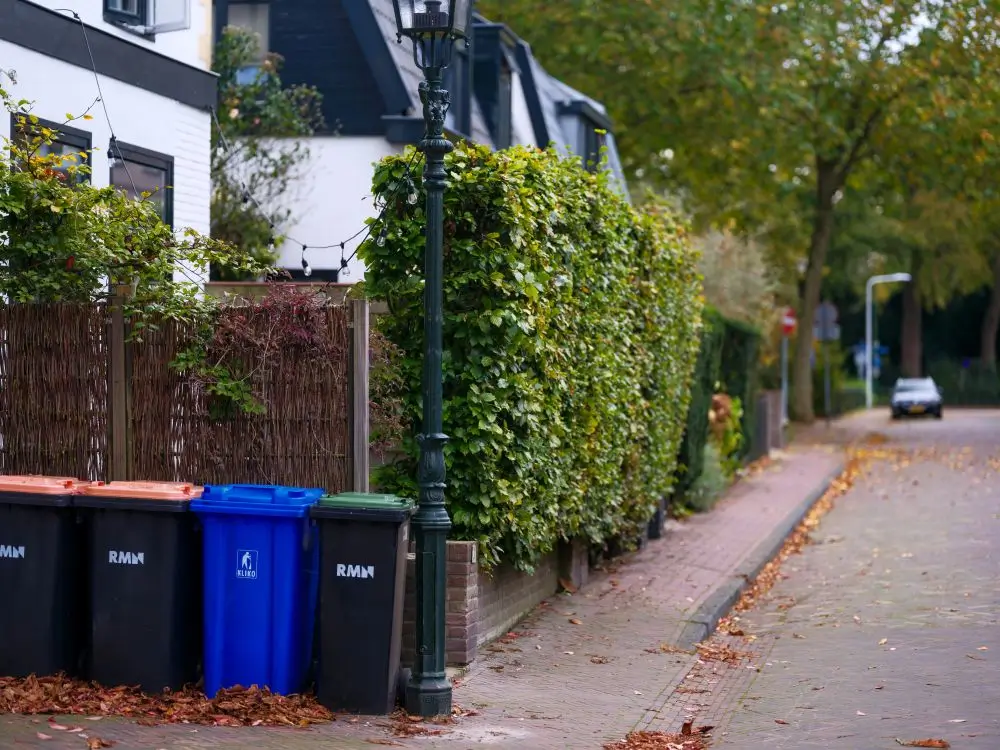
Starting Monday, September 15, 2025, municipalities across Germany are intensifying organic waste inspections. Under new regulations that came into effect in May 2025, the share of foreign materials in organic bins must not exceed three percent, while plastic is limited to one percent. Bins exceeding these limits may be left uncollected, prompting households to sort their waste correctly.
The campaign, called “Your Organic Waste Matters for the Climate” (#wirfuerbio), is organized by municipal waste management authorities. Its goal is to raise public awareness about proper waste separation and reduce microplastics entering the soil through composting. Bins containing excessive non-organic materials may be marked with a sticker or band, signaling residents to re-sort before the next collection.
Not all regions are participating in the nationwide organic waste checks. In western Germany, waste disposal companies from all federal states are taking part. In eastern Germany, including Berlin, participation is much more limited. Only the cities of Rostock (Mecklenburg-Western Pomerania), Salzwedel, Magdeburg, and Dessau-Roßlau (Saxony-Anhalt) are involved. In Thuringia, the Schmalkalden-Meiningen municipal utilities are participating.
Ronni Krug, the Deputy for Personnel, Citizen Services, and Order in Magdeburg, emphasized the importance of clean organic waste bins for producing high-quality compost that can be used in agriculture.
Municipalities across Germany are implementing different methods to enforce the stricter organic waste rules, reflecting local needs and resources. In Reutlingen, Baden-Württemberg, bins containing excessive foreign materials like plastic, metal, or stones may not be collected. Residents are required to re-sort their waste or can request a special collection at a fee.
In Freudenstadt, waste trucks are equipped with detection devices that automatically identify bins exceeding the permitted contamination levels, leaving them uncollected and signaling the need for proper sorting. In Magdeburg, bins with high levels of foreign matter are left standing and marked with a sticker, informing residents to re-sort before the next collection.
The organic waste bin is intended for materials that can be safely composted into high-quality soil and fertilizer. This includes fruit and vegetable scraps, tea bags, coffee grounds with filters, eggshells, bread, leftovers, cheese, and yogurt. Garden waste such as flowers, leaves, grass clippings, untreated wood, sawdust, and hair is also suitable. Additionally, small amounts of paper or kitchen roll can be added to absorb moisture.
The often-marketed “compostable” or “biodegradable plastic bags” are strictly prohibited in organic bins. These bags take too long to decompose in industrial composting facilities, preventing the production of high-quality compost. Additionally, dog and cat feces must not be disposed of in organic bins, as they can contain pathogens and parasites that survive the composting process and may contaminate the soil.
Proper sorting ensures that organic waste can be efficiently processed into safe compost, reduces microplastics in the environment, and supports sustainable agriculture and climate protection initiatives. Residents are encouraged to follow guidelines carefully, as non-compliance may result in sticker warnings, delayed collections, or fines depending on local regulations.
The stricter regulations aim to improve compost quality, reduce microplastics, and encourage sustainable waste management. More than 100 waste management companies nationwide plan intensified checks, making this the most comprehensive enforcement of organic waste rules in Germany to date.